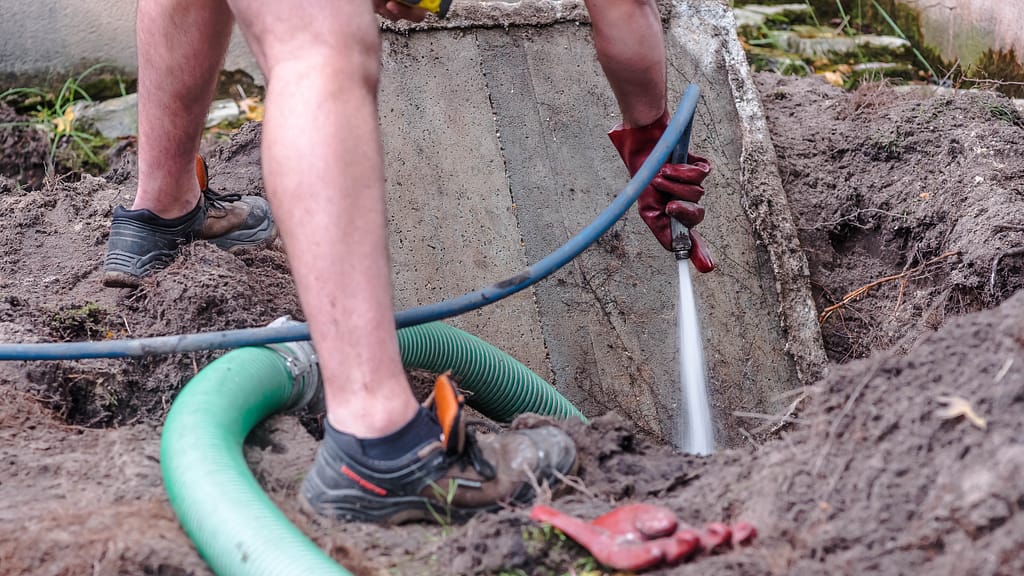Owning a home comes with its fair share of responsibilities, and one crucial aspect often overlooked is the maintenance of the septic system. A well-functioning septic system is essential for the proper disposal of wastewater, preventing environmental contamination and keeping your home hygienic. However, like any other system, septic systems can encounter issues over time. Learning to diagnose common problems can save you time, money, and hassle. Here’s a comprehensive guide to help you troubleshoot your septic system before calling in the professionals.
1. Slow Draining Fixtures
One of the earliest signs of a septic problem is slow draining fixtures such as sinks, showers, and toilets. If you notice water draining slowly or gurgling sounds coming from your drains, it could indicate a blockage in your system.
- Start by plunging the affected drains to dislodge any minor blockages.
- Use a plumbing snake or auger to remove any obstructions further down the line.
- Avoid using chemical drain cleaners as they can damage the septic system.
2. Foul Odors
Unpleasant odors emanating from your drains, yard, or around the septic tank area are a clear indicator of a septic system issue. These odors are usually caused by the buildup of gases like methane and hydrogen sulfide.
- Check for any visible signs of sewage backup or leakage around the septic tank and drain field.
- Inspect the tank’s manhole cover and ensure it is securely sealed.
- Have the tank pumped if it hasn’t been done in the last 3-5 years, as buildup can lead to odors escaping the tank.
3. Pooling Water
Pooling water in your yard, particularly around the drain field area, signifies that your septic system is not properly draining wastewater into the soil. This can be caused by a variety of issues, including clogged drain lines or a saturated drain field.
- Avoid driving or parking heavy vehicles over the drain field, as this can compact the soil and impede drainage.
- Check for excessiv plant growth or standing water in the drain field area, as these are signs of drainage issues.
- If the problem persists, contact a professional to assess the drain field’s condition and determine if repairs or replacement are necessary.
4. Septic Alarm Activation
Many modern septic systems are equipped with alarms that signal when there’s a problem, such as high water levels in the tank. If your septic alarm goes off, it’s crucial to address the issue promptly to prevent sewage backups into your home.
- Locate the alarm and refer to the owner’s manual for troubleshooting steps.
- Check the electrical connections to ensure they are secure and free of corrosion.
- If the alarm continues to sound after troubleshooting, contact a septic professional for further inspection and repairs.
5. Lush Grass Over the Drain Field
While a healthy lawn is desirable, an excessively lush and green patch of grass over your drain field could indicate a problem with your septic system. This phenomenon, known as biomat formation, occurs when the soil beneath the drain field becomes saturated with organic matter and sewage effluent.
- Monitor the area regularly for signs of overgrowth or standing water.
- Reduce water usage in the household to alleviate stress on the drain field.
- Consider installing aeration devices or diverting surface water away from the drain field to promote better drainage.
When to Call a Professional
While DIY troubleshooting can resolve many septic system issues, some problems require the expertise of a professional septic technician. If you encounter any of the following scenarios, it’s time to seek professional help:
- Sewage backup into the home
- Persistent foul odors despite DIY efforts
- Visible signs of damage to the septic tank or drain field
- Frequent septic alarm activation
Remember, regular maintenance and prompt attention to septic system issues are essential for preventing costly repairs and protecting the health of your family and the environment. By familiarizing yourself with these common problems and their DIY solutions, you can ensure your septic system operates smoothly for years to come.

